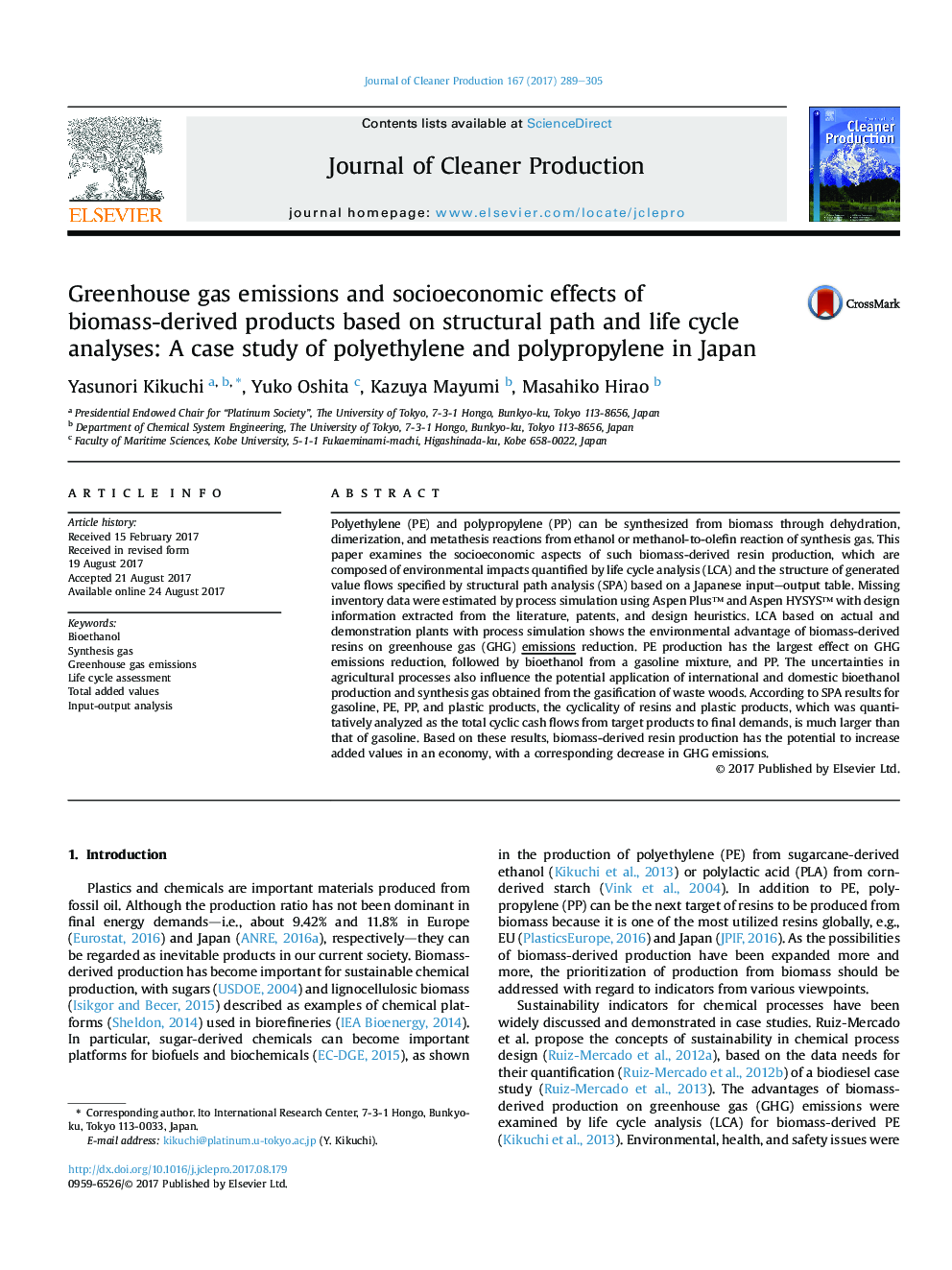| کد مقاله | کد نشریه | سال انتشار | مقاله انگلیسی | نسخه تمام متن |
|---|---|---|---|---|
| 5479451 | 1522087 | 2017 | 17 صفحه PDF | دانلود رایگان |
عنوان انگلیسی مقاله ISI
Greenhouse gas emissions and socioeconomic effects of biomass-derived products based on structural path and life cycle analyses: A case study of polyethylene and polypropylene in Japan
ترجمه فارسی عنوان
انتشار گازهای گلخانه ای و اثرات اجتماعی و اقتصادی محصولات مشتق شده از زیست توده بر اساس ساختار مسیر و تجزیه و تحلیل چرخه عمر: مطالعه مورد پلی اتیلن و پلی پروپیلن در ژاپن
دانلود مقاله + سفارش ترجمه
دانلود مقاله ISI انگلیسی
رایگان برای ایرانیان
کلمات کلیدی
بیوتکنول، گاز سنتز، انتشار گازهای گلخانه ای، ارزیابی چرخه حیات، مجموع ارزش افزوده، تجزیه و تحلیل ورودی-خروجی،
موضوعات مرتبط
مهندسی و علوم پایه
مهندسی انرژی
انرژی های تجدید پذیر، توسعه پایدار و محیط زیست
چکیده انگلیسی
Polyethylene (PE) and polypropylene (PP) can be synthesized from biomass through dehydration, dimerization, and metathesis reactions from ethanol or methanol-to-olefin reaction of synthesis gas. This paper examines the socioeconomic aspects of such biomass-derived resin production, which are composed of environmental impacts quantified by life cycle analysis (LCA) and the structure of generated value flows specified by structural path analysis (SPA) based on a Japanese input-output table. Missing inventory data were estimated by process simulation using Aspen Plus⢠and Aspen HYSYS⢠with design information extracted from the literature, patents, and design heuristics. LCA based on actual and demonstration plants with process simulation shows the environmental advantage of biomass-derived resins on greenhouse gas (GHG) emissions reduction. PE production has the largest effect on GHG emissions reduction, followed by bioethanol from a gasoline mixture, and PP. The uncertainties in agricultural processes also influence the potential application of international and domestic bioethanol production and synthesis gas obtained from the gasification of waste woods. According to SPA results for gasoline, PE, PP, and plastic products, the cyclicality of resins and plastic products, which was quantitatively analyzed as the total cyclic cash flows from target products to final demands, is much larger than that of gasoline. Based on these results, biomass-derived resin production has the potential to increase added values in an economy, with a corresponding decrease in GHG emissions.
ناشر
Database: Elsevier - ScienceDirect (ساینس دایرکت)
Journal: Journal of Cleaner Production - Volume 167, 20 November 2017, Pages 289-305
Journal: Journal of Cleaner Production - Volume 167, 20 November 2017, Pages 289-305
نویسندگان
Yasunori Kikuchi, Yuko Oshita, Kazuya Mayumi, Masahiko Hirao,
